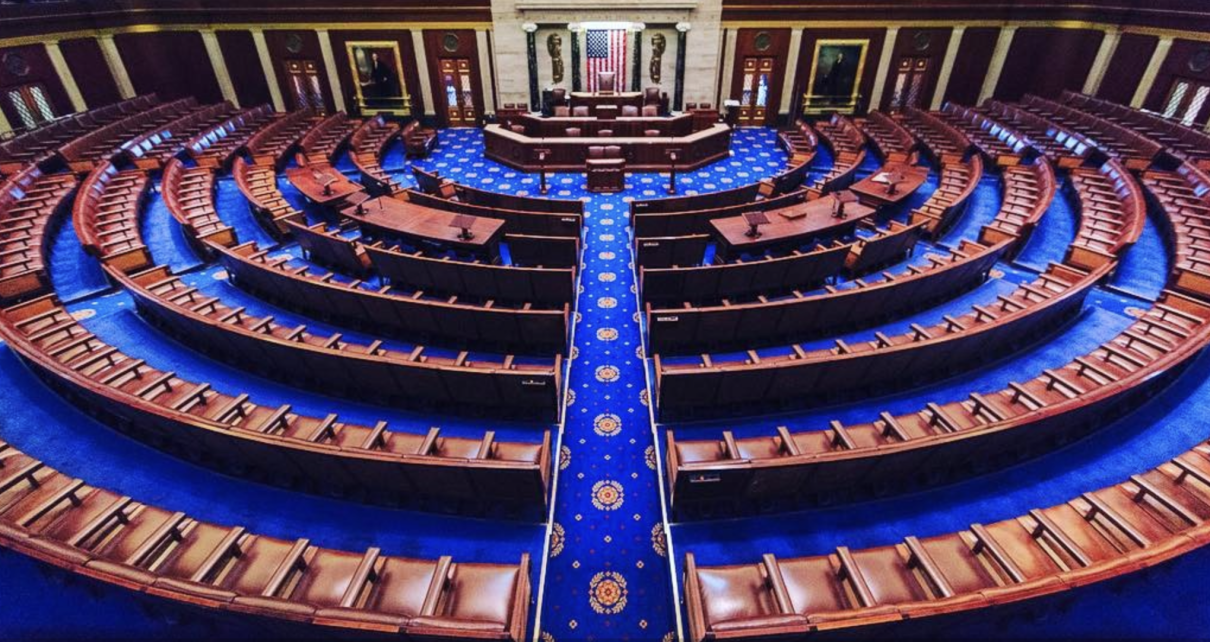
U.S. House of Representatives. (Photo: house.gov)
Freelancer Freedom Bill Moves Forward
House committee approves effort to block new Su rule
By Thomas Buckley, March 22, 2024 4:54 am
The House Education and the Workforce Committee today approved and sent to the full House of Representatives a measure that would overturn the new anti-independent contractor rule put in place by Julie Su’s Department of Labor.
The committee passed the “congressional review act” (CRA) measure by a vote of 21 to 13, with only Republicans voting yes and only Democrats voting no.
The new fed rule, which took effect March 11, is clearly an effort by the Biden administration to reduce the number of freelancers/independent contractors by forcing them to be classified as full time employees and, therefore, eligible for possible unionization.
While not as strict as California’s own onerous AB 5 law, the new fed standards are inspired by the disastrous – more than 10% of freelance work disappeared in the state after its passage – California law and will have a similarly deleterious impact on the 79 million or so freelancers/gig economy workers nationwide.
Among its numerous problems, the new fed standards are so obtuse that many of the “employee or contractor?” decisions can and will be made by a mid-level Labor Department bureaucrat in local district offices.
In other words, the standards set up an “eye of the beholder” situation and the labor cubiciloids and rafts of judges and lawyers will be the beholders.
Here – in a nutshell from the Labor Department – is the new test:
The rule addresses six factors that guide the analysis of a worker’s relationship with an employer, including any opportunity for profit or loss a worker might have; the financial stake and nature of any resources a worker has invested in the work; the degree of permanence of the work relationship; the degree of control an employer has over the person’s work; whether the work the person does is essential to the employer’s business; and a factor regarding the worker’s skill and initiative.
How to balance these standards, i.e. which to note as more important and impactful when making a classification decision, is left deliberately obscure.
“Washington should support workers, not regulate them into oblivion,” said Rep. Kevin Kiley (R-Rocklin), the sponsor of the bill. “The rule is modeled after on the same job-killing AB 5 and will cost millions of independent professionals across the country their livelihoods while restricting the freedom of many millions more to have flexible work arrangements. This CRA will nullify this terrible regulation and protects independent contractors.”
Democrats on the committee did not agree with Kiley’s take on the new rule.
Rep. Alma Adams (D-NC) said the new rule benefits both workers and employees by cutting “worker status fraud” – which she said lets bad employers game the tax system – and will help hitherto freelancers to get new benefits like health care and protections like overtime (once re-classified as an employee.)
Two other Democrats specifically noted that the rule will make it easier for unions to “organize” workers once, again, re-classified as employees.
Rep. Burgess Owens (R-UT) said that helping big labor, not the workers, was the real point of the new rule.
“This is for the union’s coffers,” Owens said.
News of the CRA’s passage out of committee pleased Karen Anderson, founder of Freelancers Against AB 5 and a co-coalition leader of https://saveindependentwork.org/ .
“This rule will have horrible consequences for independent contractors throughout the country. In California, countless independent professionals know firsthand how being reclassified as a W-2 employee can destroy careers across a vast swath of professions,” Anderson said. “Now that Rep. Kiley’s joint resolution has passed in committee, we hope more lawmakers will join in support of common sense solutions to protecting workers’ livelihoods.”
The bill now heads to the full House for a vote. A sister bill in the Senate will be considered as well, most likely after the as-yet-unscheduled House vote.
- Curiouser and Curiouser: Gascon’s Aide Charges Raise Troubling Issues - April 27, 2024
- Reedley ‘Lab’ Prompts Legislation - April 26, 2024
- USC Cancels Graduation - April 26, 2024





It might be “essential” for a business to hire an attorney at times but requiring an attorney to be classified as an employee is ridiculous. It would be great if federal law could prohibit states from having these laws.
There’s nothing correct about the headline for this article nor the comment about lawyers nor the expectations for Biden’s new rule.
= The headline is for a story about Scott Wiener’s AB5-related Freelance Workers Protection Act, not Biden’s FLSA rule. Wiener’s FWPA bill is close to being a scam. It protects only freelancers and independent contractors who have been able to win exemption from AB5. This is a small minority of independent workers in California. The rule was written by lobbyists from the Teamsters Union to build credibility for AB5, which is now suspended by the Ninth District, US Supreme Court, because it likely violates the Equal Protection clause of the US Constitution.
= Lawyers are automatically exempt from AB5. They only need to pass the same Borello rule they’ve been passing all along. And lawyers are employees when they work for law firms, not when they’re consulted by clients.
= Biden’s rule restores the many rules about independent contracting that have descended from the 1947 Silk decision. It creates so many loopholes for employers to walk through that it’s practically an engraved invitation. The labor movement is so confused and disappointed by its failure to limit independent workers that it has forgotten the decades of its own complaints about the loopholes. Ironically, Trump’s rewrite of the rule was harder on employers and easier for regulatory agencies to enforce, but the labor movement so hates Trump that Biden had no choice but to replace it.